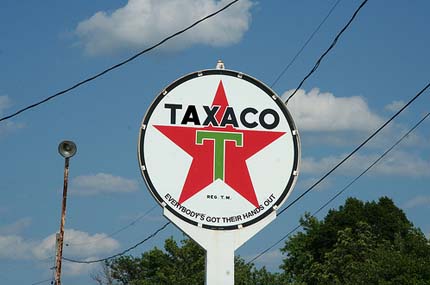The United States must move away from the gas tax to solutions that charge people for the roads they use, including a VMT fee, congestion pricing for peak hours and toll roads, says Jack Finn of HNTB. Such efforts will encourage Americans to be less dependent on oil, reduce congestion, take public transit and properly invest in infrastructure.
 Americans hate the gasoline tax about as much as they love their cars.
Americans hate the gasoline tax about as much as they love their cars.
At the federal level, money from a gas tax was first placed into the Highway Trust Fund in 1956 as the country embarked on President Dwight Eisenhower's grand vision of establishing a network of interstate highways to spur commerce and aid in the country's defense.
Now, more than 50 years later, Eisenhower's long-ago realized vision is reaching the end of its useful lifespan, and the gas tax itself is running on empty.
This is unwelcome news to the average American driver, already suffering through the current economic downturn and the painful $4 per gallon gas that preceded it.

For years we've comforted ourselves with the notion that filling up at the pump pays for our roads in full. This is nothing more than a myth, a misperception that must end. In fact:
- There is no such thing as a free road. Anyone who has paid off a mortgage knows there are always costs of home ownership. Renovations, expansions and simple upkeep - while necessary - can be expensive. Simply paying off the original financing on a transportation project doesn't mean it's paid for either.
- Roads don't pay for themselves. Research from the Texas Department of Transportation has compared how much gasoline is consumed on a roadway with how much gas tax that generates, revealing that no road completely pays for itself over a 40-year lifespan.
- Weve run up a huge transportation tab. Crumbling roads, rusting bridges and congestion are all signs we've deferred too much maintenance. According to a national commission that studied our surface transportation needs, we need to invest at least $225 billion annually for the next 50 years to repair and upgrade the system. The longer we wait the more expensive it becomes.
- The gas tax isn't what it used to be. The federal gas tax, now set at 18.4 cents per gallon, was last increased in 1993. A combination of inflation, changing driving habits - due in part to higher gas prices - and better fuel economy of our cars has robbed it of much of its purchasing power. In fact, the trust fund is broke, needing infusions from the general treasury totaling more than $15 billion in the last year alone.
The way we fund our roads is at odds with almost every other public policy America has adopted. While proposed climate change legislation, green energy initiatives and even our foreign policy demand that we move away from a dependence on oil, we pay for our transportation system almost entirely by using more of it.
In the short-term, we need to consider an increase in the gas tax. It's a bitter pill to swallow, but it's the only way we can ease the congestion we face. At last count, that congestion costs every traveler in the U.S. $750 a year. A gas tax increase between 5 cents and 8 cents each year during the next five years will cost average Americans only $10 to $20 each month per car.
In Britain and much of Europe the gas tax is nearly $4 per gallon, 20 times the federal tax in the U.S.
In the long-term, we must move away from the gas tax to solutions that actually charge people for the roads they use, including a vehicle miles traveled user fee, congestion pricing for peak hours and more toll roads. We're willing to pay for actual use of other utilities - like electricity, water and natural gas - why not our roads?
Such efforts will encourage Americans to be less dependent on oil, reduce congestion, encourage use of public transit and properly invest in infrastructure.
Jack Finn is National Director of Toll Services for HNTB Corporation.

Planetizen Federal Action Tracker
A weekly monitor of how Trump’s orders and actions are impacting planners and planning in America.

Chicago’s Ghost Rails
Just beneath the surface of the modern city lie the remnants of its expansive early 20th-century streetcar system.

Amtrak Cutting Jobs, Funding to High-Speed Rail
The agency plans to cut 10 percent of its workforce and has confirmed it will not fund new high-speed rail projects.

Ohio Forces Data Centers to Prepay for Power
Utilities are calling on states to hold data center operators responsible for new energy demands to prevent leaving consumers on the hook for their bills.

MARTA CEO Steps Down Amid Citizenship Concerns
MARTA’s board announced Thursday that its chief, who is from Canada, is resigning due to questions about his immigration status.

Silicon Valley ‘Bike Superhighway’ Awarded $14M State Grant
A Caltrans grant brings the 10-mile Central Bikeway project connecting Santa Clara and East San Jose closer to fruition.
Urban Design for Planners 1: Software Tools
This six-course series explores essential urban design concepts using open source software and equips planners with the tools they need to participate fully in the urban design process.
Planning for Universal Design
Learn the tools for implementing Universal Design in planning regulations.
Caltrans
City of Fort Worth
Mpact (founded as Rail~Volution)
City of Camden Redevelopment Agency
City of Astoria
City of Portland
City of Laramie





























